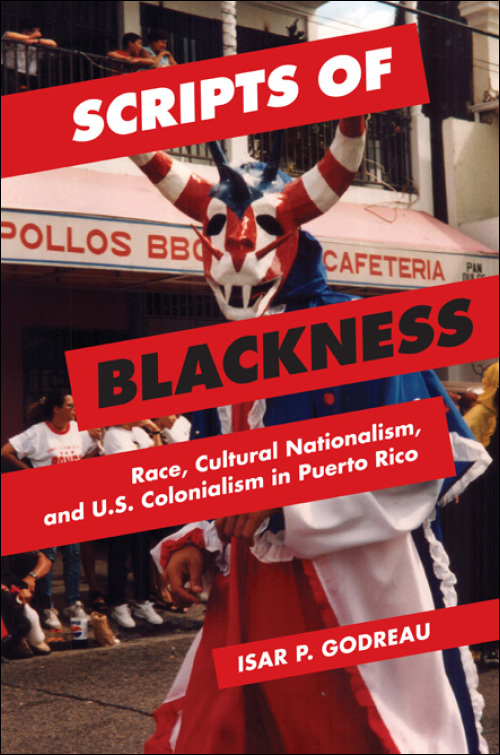Scripts of Blackness: Race, Cultural Nationalism, and U.S. Colonialism in Puerto RicoPosted in Anthropology, Books, Caribbean/Latin America, Economics, History, Media Archive, Monographs, Politics/Public Policy, United States on 2015-02-08 20:07Z by Steven |
Scripts of Blackness: Race, Cultural Nationalism, and U.S. Colonialism in Puerto Rico
University of Illinois Press
February 2015
320 pages
6.125 x 9.25 in.
38 black & white photographs, 3 maps, 1 chart, 3 tables
Cloth ISBN: 978-0-252-03890-7
Paper ISBN: 978-0-252-08045-6
Isar P. Godreau, Researcher and Former Director
Institute for Interdisciplinary Research
University of Puerto Rico, Cayey
Ideas of blackness, whiteness, and racial mixture in a Puerto Rican barrio
The geopolitical influence of the United States informs the processes of racialization in Puerto Rico, including the construction of black places. In Scripts of Blackness, Isar P. Godreau explores how Puerto Rican national discourses about race—created to overcome U.S. colonial power—simultaneously privilege whiteness, typecast blackness, and silence charges of racism.
Based on an ethnographic study of the barrio of San Antón in the city of Ponce, Scripts of Blackness examines institutional and local representations of blackness as developing from a power-laden process that is inherently selective and political, not neutral or natural. Godreau traces the presumed benevolence or triviality of slavery in Puerto Rico, the favoring of a Spanish colonial whiteness (under a hispanophile discourse), and the insistence on a harmonious race mixture as discourses that thrive on a presumed contrast with the United States that also characterize Puerto Rico as morally superior. In so doing, she outlines the debates, social hierarchies, and colonial discourses that inform the racialization of San Antón and its residents as black.
Mining ethnographic materials and anthropological and historical research, Scripts of Blackness provides powerful insights into the critical political, economic, and historical context behind the strategic deployment of blackness, whiteness, and racial mixture.
